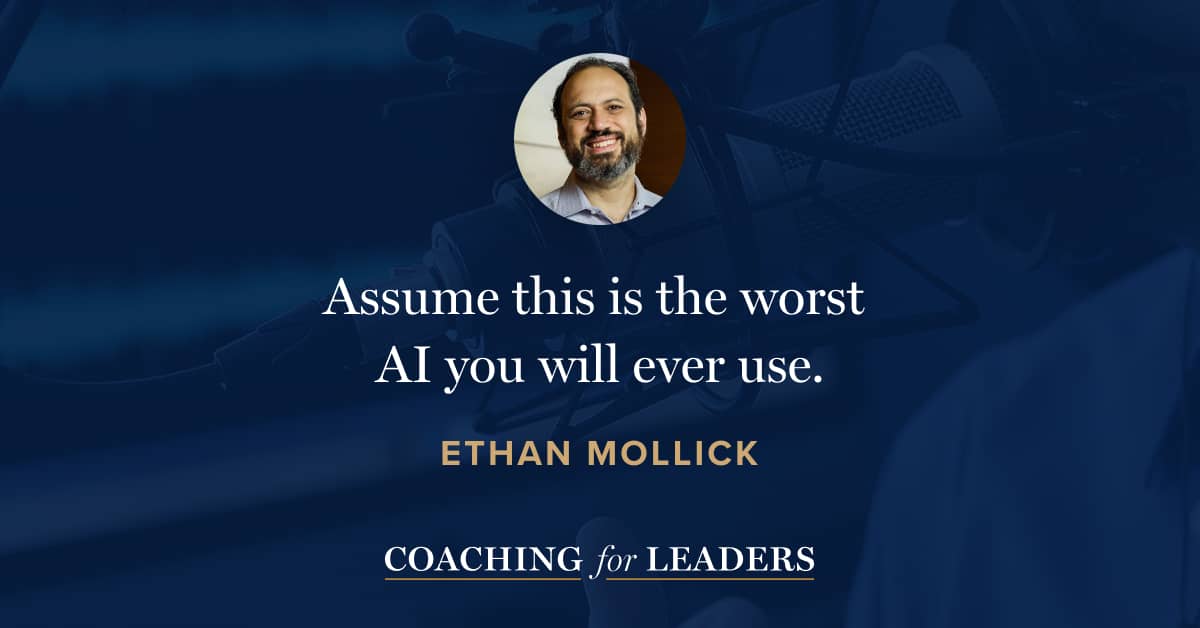Ethan Mollick: Co-Intelligence
Ethan Mollick is a professor of management at Wharton, specializing in entrepreneurship and innovation. His research has been featured in various publications, including Forbes, The New York Times, and The Wall Street Journal.
Through his writing, speaking, and teaching, Ethan has become one of the most prominent and provocative explainers of AI, focusing on the practical aspects of how these new tools for thought can transform our world. He's the author of the popular One Useful Thing Substack and also the author of the book, Co-Intelligence: Living and Working with AI*.
Whether you’ve used it or not, you’ve heard that AI will transform how we work. Given how quickly the technology is changing, how do you start and, if you’ve started already, what’s the way to use it well? In this conversation, Ethan and I discuss the principles for using AI, even as the technology changes.
Key Points
- GPT-4 is already passing the bar examination in the 90th percentile, acing AP exams, and even passing the Certified Sommelier Examination.
- Always invite AI to the table. It’s may be helpful, frustrating, or useless — but understanding how it works will help you appreciate how it may help or threaten you.
- Being the “human in the loop” will help you catch where AI isn’t accurate or helpful. Zeroing in on areas where you are already an expert will help you appreciate where AI is useful and where its limitations emerge.
- Treat AI like a person, but tell it what kind of person it is. It’s helpful to think of AI like an alien person rather than a machine.
- Assume this is the worst AI you will ever use. Embracing that reality will help you stay open to possibilities on how you use AI do your work better.
Resources Mentioned
- Co-Intelligence: Living and Working with AI* by Ethan Mollick
Interview Notes
Download my interview notes in PDF format (free membership required).
Related Episodes
- How to Build an Invincible Company, with Alex Osterwalder (episode 470)
- Doing Better Than Zero Sum-Thinking, with Renée Mauborgne (episode 641)
- How to Begin Leading Through Continuous Change, with David Rogers (episode 649)
Discover More
Activate your free membership for full access to the entire library of interviews since 2011, searchable by topic. To accelerate your learning, uncover more inside Coaching for Leaders Plus.





